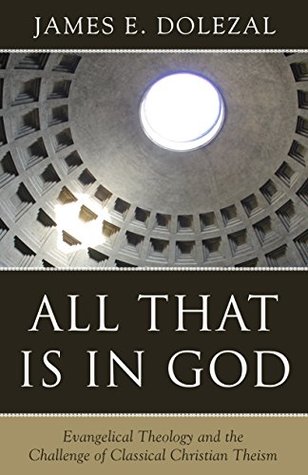More on this book
Community
Kindle Notes & Highlights
This is no doubt a strange way to think of a person. If we consider creaturely persons, we find that each person is also a complete substance really distinct in being from all other persons. Further, in human persons relations inhere as accidents—they don’t subsist as persons themselves. Though this is true of creatures, however, it is not true of God.33 William Ames, tracking Aquinas, speaks representatively of the Reformed orthodox tradition when he states, “A relative property in God implies a person, but this is not so in creatures.”34 Louis Berkhof also spotlights the difficulty of our
...more
This highlight has been truncated due to consecutive passage length restrictions.
Perichoresis is the ancient teaching that argues that each of the three persons indwells and is interior to the others. Such is reflected in Jesus’s words in John 14:11, “I am in the Father and the Father in Me.”
Like Moreland and Craig, he understands the three persons “as distinct centers of knowledge, will, love, and action.”
It is the communication of substantial unity from the Father to the Son and from the Father and Son to the Spirit that makes the persons one being, not the relations qua relations. Matthew Levering writes, “The truth of the Trinity hinges upon the fact that the Father’s divine being and unity is eternally shared or communicated, rather than constituted, in the ‘tripersonal movement of gift.’”


